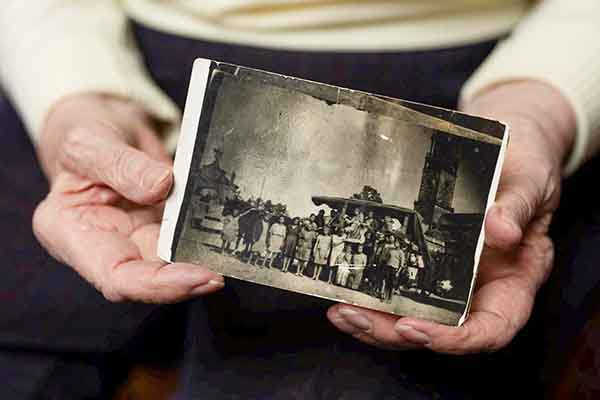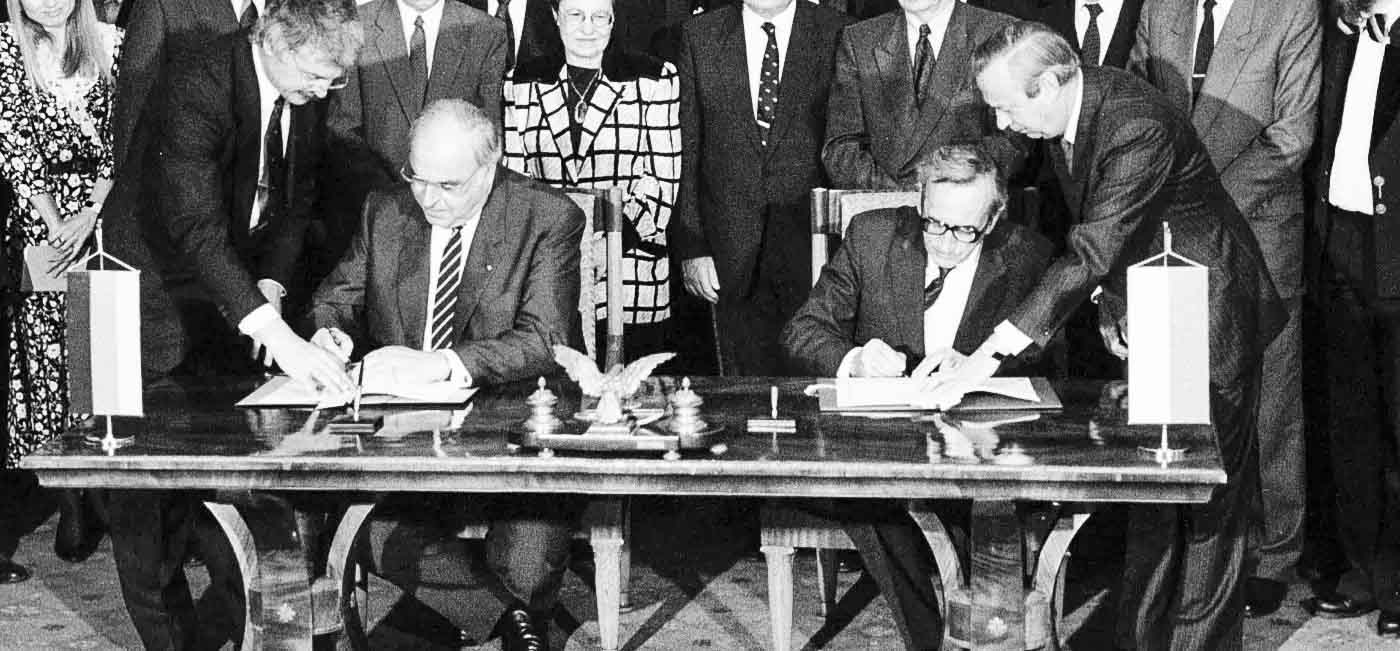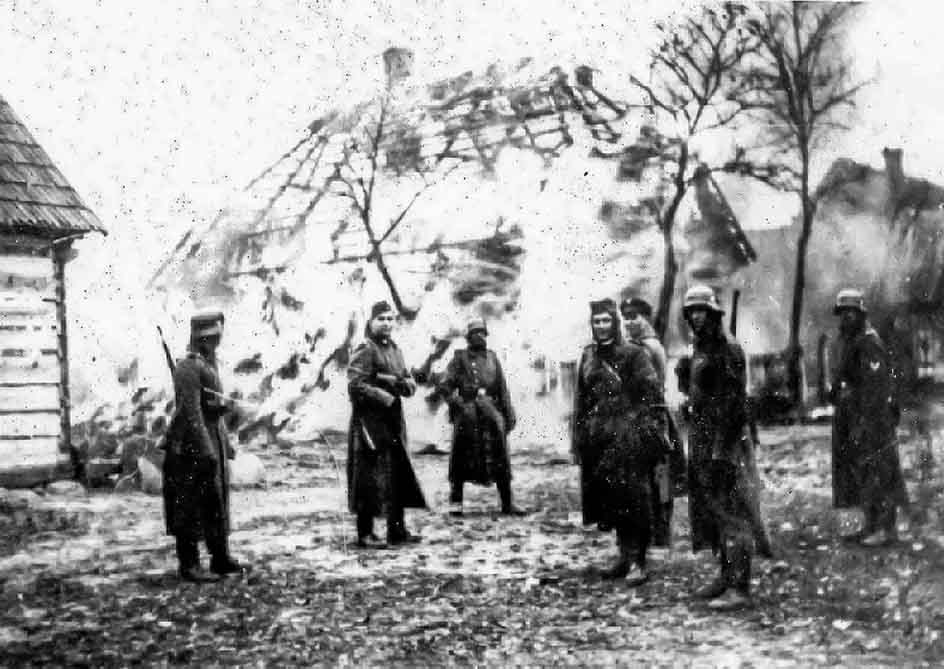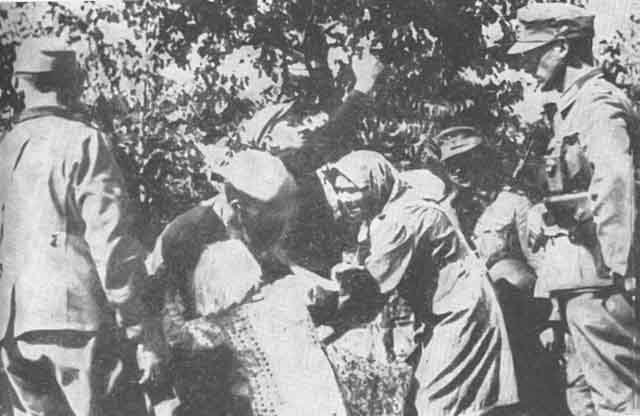When the issue of German reunification weighed on the table in 1990, Chancellor Helmut Kohl did his best to sweep the issue of compensation for the Polish victims of the Nazi occupation under the rug. And he succeeded. At the time, the head of the West German government convinced the US President that there was no point in returning to the issue, as the Federal Republic had paid out a total of more than 100 billion marks (DM), of which Poland had received 'grosse Summen'. This was untrue: by the time of German reunification, Polish victims had received only one per mile of this sum. Let's take a look at how much FRG has so far handed over to the Poles. It turns out that these amounts are astonishingly low.

(Source: DlaPolonii.pl)
It is necessary to begin with the reparations that, according to the Potsdam Conference (July/August 1945), Poland was to receive through the USSR. At Yalta, a total amount of reparations from Germany of 20 billion pre-war dollars was mentioned, of which the Soviet Union would receive half, or 10 billion dollars. At Potsdam, the specific amount was not repeated, but in the Polish-Soviet agreement concluded two weeks after the end of the conference (16 August 1945), it was agreed that the USSR would transfer to Poland goods worth 15 percent of the reparations collected from Germany by the Soviets. According to the Yalta proposals, this would have been a sum of 1.5 billion dollars. Unfortunately, the Kremlin forced Poland to supply the Soviet Union with coal and coke at a 'contractual' price, many times lower than the market price, for the duration of the reparations collection. Millions, sometimes several million tonnes a year, were involved. In addition, the USSR proceeded to dismantle factories, equipment, etc. in the areas that the Potsdam Conference had granted to Poland. Later, in 1957, experts from the government of the Polish People's Republic estimated these losses at 1.5 billion pre-war dollars. Taking into account that the goods delivered to Poland were sometimes of zero value (e.g., millions of copies of the works of classics by Marx, Engels, Lenin, and Stalin), it can be concluded that Poland was disadvantaged in the matter of reparations and came out overall at zero.
After the establishment of diplomatic relations between the People's Republic of Poland and RFN under the treaty of 7 December 1970, West Germany only paid, under the 1972 treaty, 100 million German marks (DM) to Polish victims of pseudo-medical experiments in German concentration camps. A small amount was added to finance the administrative handling of these payments. This was all that West Germany handed over to the Polish victims of the German occupation. These payments were described, moreover, as humanitarian aid and not as reparations.
Some Polish authors (Prof. Krzysztof Ruchniewicz of the Willy Brandt Centre) add to this the amount of DM 1.3 billion that FRG transferred to Poland under the 1975 agreement on the lump-sum settlement of pension claims. Unjustifiably, this was merely a refund of pension contributions collected by German institutions on the territory of occupied Poland. It had nothing to do with reparations. Prof. Jan Barcz points out, moreover, that this reimbursement took place according to a conversion rate that was extremely favourable for FRG.
Thus, when Chancellor Kohl told President George H. W. Bush in February 1990 that the Poles had received 'huge sums' in reparations from Germany, this was an outright lie. At the time, Kohl mentioned a total of more than DM 100 billion. Of this, the Poles received only one PER MILLE, not even one percent.
In 1990, the already united Germany demanded that the already non-communist Poland, which was in the throes of an economic crisis, settle for barely DM 500 million. Under the Żabiński-Kastrup treaty, signed on 16 October 1991, as humanitarian aid (for FRG, the word 'reparations' was and is taboo), certain categories of victims, mainly prisoners, were to receive a total of DM 500 million. In return, the Polish government promised not to support any further compensation claims by its citizens against FRG.
It took only a few more years and difficult negotiations involving Jewish organisations and US representatives before small amounts of 'humanitarian aid' from FRG were given to the surviving former Polish forced labourers, victims of slave labour for Germany. This was done under agreements of 1999 and 2000. Funds were paid to 484,000 people for a total amount of more than 3.5 billion zlotys (just under one billion euros, specifically 975.5 million euros). These – still small – benefits also occurred 'on a voluntary basis' (ex gratia).
In total, during the entire period of its existence, the Federal Republic paid out to the still-living Polish victims of the German occupation a relatively small amount of approximately PLN 6 billion (estimates by Prof. Jerzy Sulk and Prof. Jan Barcz; Prof. Ruchniewicz unjustifiably almost doubles this amount). How small this sum is, it is enough to mention that the annual cost of the famous 500-plus programme implemented by the Polish government is approximately PLN 40 billion. Hundreds of thousands, if not millions, of Polish victims have not received any compensation from FRG.












